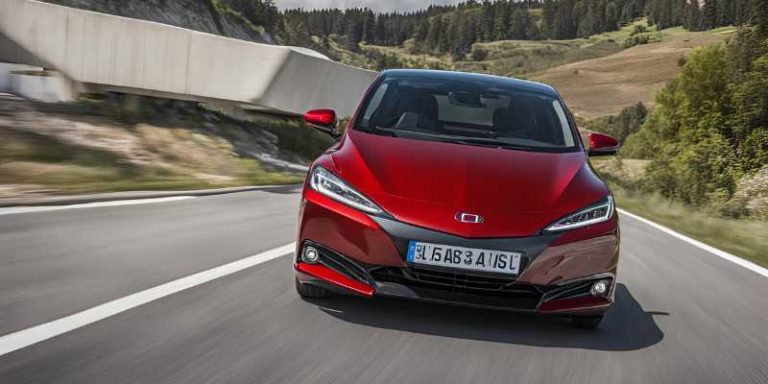Car Ownership As a Lifestyle Investment
Owning a car can be seen as a lifestyle investment due to the convenience and freedom it offers. With the ability to go wherever you want, whenever you want, a car can greatly enhance your quality of life.
In today’s fast-paced world, having a personal vehicle provides unparalleled freedom and flexibility. Whether it’s for daily commutes, weekend getaways, or spontaneous road trips, car ownership offers a level of convenience that can significantly impact one’s lifestyle. This sense of independence extends beyond just transportation, as it also affords the freedom to carry luggage, transport goods, and navigate various routes without relying on external schedules or transportation services.
The value of car ownership goes beyond mere mobility, making it a lifestyle investment that enhances personal freedom and convenience.
The Emotional Value Of Car Ownership
Car ownership is more than just a financial investment; it holds significant emotional value for many individuals. Beyond the practicality of transportation, owning a car symbolizes personal freedom, status, and lifestyle choices.
Personal Freedom And Flexibility
Having a car grants you the freedom to travel at your convenience without relying on public transportation schedules or others. You can easily pack your belongings and hit the road whenever you desire, exploring new places at your own pace.
The Status Symbol Debate
While some view cars as a status symbol, others prioritize functionality over prestige. Owning a luxury car may signify success and wealth to some, while others value reliability and practicality in their choice of vehicle.
Financial Implications
When considering car ownership as a lifestyle investment, it is crucial to understand the financial implications involved. Let’s delve into the key aspects:
Depreciation: The Downside Of Car Investment
Car values depreciate due to various factors such as wear and tear, market demand, and technological advancements.
Maintenance And Running Costs
Regular maintenance and running costs, including fuel, insurance, and repairs, can significantly impact the overall cost of car ownership.
Lifestyle Benefits And Trade-offs
Car ownership offers a myriad of lifestyle benefits, but it also comes with trade-offs. Understanding these aspects is crucial for individuals considering car ownership as a lifestyle investment.
Convenience For Urban Vs Rural Dwellers
For urban dwellers, owning a car can provide unparalleled convenience, especially in areas with limited public transportation options. It offers the freedom to navigate the city without being restricted by fixed schedules or routes. On the other hand, rural dwellers often rely heavily on cars as their primary mode of transportation due to the lack of public transit options and the vast distances between destinations.
Travel Independence And Spontaneity
Owning a car empowers individuals with the ability to embark on spontaneous road trips and travel adventures. It eliminates the need to adhere to public transportation schedules or booking procedures, enabling individuals to embrace spontaneity and explore new destinations at their leisure.
The Luxury Car Market
When it comes to car ownership as a lifestyle investment, the luxury car market holds a unique allure for enthusiasts and investors alike. The appeal of high-end vehicles extends beyond mere transportation, positioning them as tangible assets with the potential for appreciation over time.
Investment Potential Of High-end Vehicles
High-end vehicles offer a unique investment potential, often retaining a higher percentage of their original value compared to standard automobiles. They are coveted for their superior craftsmanship, advanced technology, and exclusive brand cachet, making them desirable to discerning buyers and collectors.
Fractional Ownership Trends
The trend of fractional ownership has gained traction in the luxury car market, allowing individuals to invest in a fractional stake of a high-end vehicle. This innovative approach enables multiple owners to share the costs and benefits of owning a luxury car, providing an opportunity for enthusiasts to experience the prestige of ownership without bearing the full financial burden.
Environmental Considerations
When it comes to car ownership as a lifestyle investment, it is crucial to consider the environmental impact of vehicles. From the choice of the vehicle to the overall carbon footprint, every aspect plays a significant role in contributing to the sustainability of the environment.
Eco-friendly Vehicles As A Responsible Choice
Opting for eco-friendly vehicles significantly reduces the environmental impact of car ownership. Electric and hybrid vehicles, powered by cleaner energy sources, contribute to reduced emissions and promote sustainable transportation.
Impact Of Car Ownership On Carbon Footprint
The carbon footprint of car ownership is a critical aspect to consider. From daily commuting to long-distance travel, the fuel efficiency and emissions of a vehicle directly impact the environment. Choosing vehicles with lower emissions and higher fuel efficiency can lead to a substantial reduction in carbon footprint.
The Classic Car Niche

Owning a classic car is more than just a hobby; it’s a lifestyle investment that appeals to enthusiasts and collectors alike. The classic car niche offers a unique blend of nostalgia, craftsmanship, and investment potential, making it a compelling choice for those who appreciate automotive history and design.
Appreciation Potential Of Vintage Models
Classic cars, especially vintage models, have shown remarkable appreciation potential over the years. Their scarcity and historical significance contribute to their value, making them a lucrative investment for collectors. As time passes, well-maintained vintage cars often appreciate in value, offering a rewarding return on investment for enthusiasts.
The Joy Of Restoration And Preservation
Restoring and preserving classic cars is a gratifying experience that allows enthusiasts to revel in the craftsmanship and heritage of these timeless vehicles. The process of bringing a vintage car back to its former glory not only adds value to the car itself but also provides a sense of accomplishment and pride for the owner.
Future Of Car Ownership
Owning a car is no longer just about transportation; it has become a lifestyle investment that reflects personal style and preferences. As we look ahead, the future of car ownership is poised for significant changes driven by technological advancements and shifting attitudes towards shared mobility.
Technological Advancements In Automobiles
- Electric vehicles (EVs) revolutionizing the automotive industry
- Integration of AI and machine learning for autonomous driving
- Enhanced connectivity through IoT technology
- Development of eco-friendly and sustainable materials
Changing Attitudes Towards Shared Mobility
- Rise of car-sharing services like Zipcar and Turo
- Increased adoption of ride-hailing platforms such as Uber and Lyft
- Shift towards subscription-based models for vehicle access
- Growing emphasis on environmental sustainability and reducing traffic congestion
Making An Informed Decision
When considering car ownership as a lifestyle investment, it’s crucial to make informed decisions that align with your needs and long-term goals. By evaluating your requirements and understanding the implications of ownership, you can ensure that your investment is not only practical but also beneficial in the years to come.
Evaluating Needs Vs Wants
Before purchasing a car, distinguish between your needs and wants. Consider factors such as daily commutes, family size, and lifestyle requirements to determine the essential features your vehicle must have. By prioritizing necessities over luxuries, you can optimize your investment and ensure that your car meets your practical needs.
Long-term Considerations For Potential Owners
Prospective car owners must also evaluate the long-term implications of their purchase. Factors such as maintenance costs, fuel efficiency, and potential resale value should be carefully considered to ensure that the chosen vehicle remains sustainable over time. By prioritizing durability and resale potential, owners can maximize the value of their investment in the future.

Frequently Asked Questions
Do Vehicles Count As Investments?
Although vehicles can be defined as assets because they can be converted into cash, they are not considered as investments. Unlike other assets such as real estate or shares, automobiles are vulnerable to depreciation factors that can cause their values to plummet.
Therefore, owning a car is beneficial for transportation purposes but typically won’t provide a good return on investment.
Is Buying A Car Investment Spending?
No, buying a car is not considered an investment because cars depreciate in value over time.
Is Owning A Car Beneficial?
Owning a car provides freedom and flexibility, allowing you to travel at your convenience and carry more luggage. However, cars generally depreciate, so they are not considered a good financial investment.
Why Do People In Cities Own Cars?
People in cities own cars for convenience, freedom, and flexibility in their daily commute and activities.
Conclusion
Owning a car can offer convenience and freedom, but it may not necessarily be a sound financial investment due to depreciation. It serves as a lifestyle choice rather than a traditional form of investment. Consider the practical benefits and costs before viewing it purely as a financial asset.






